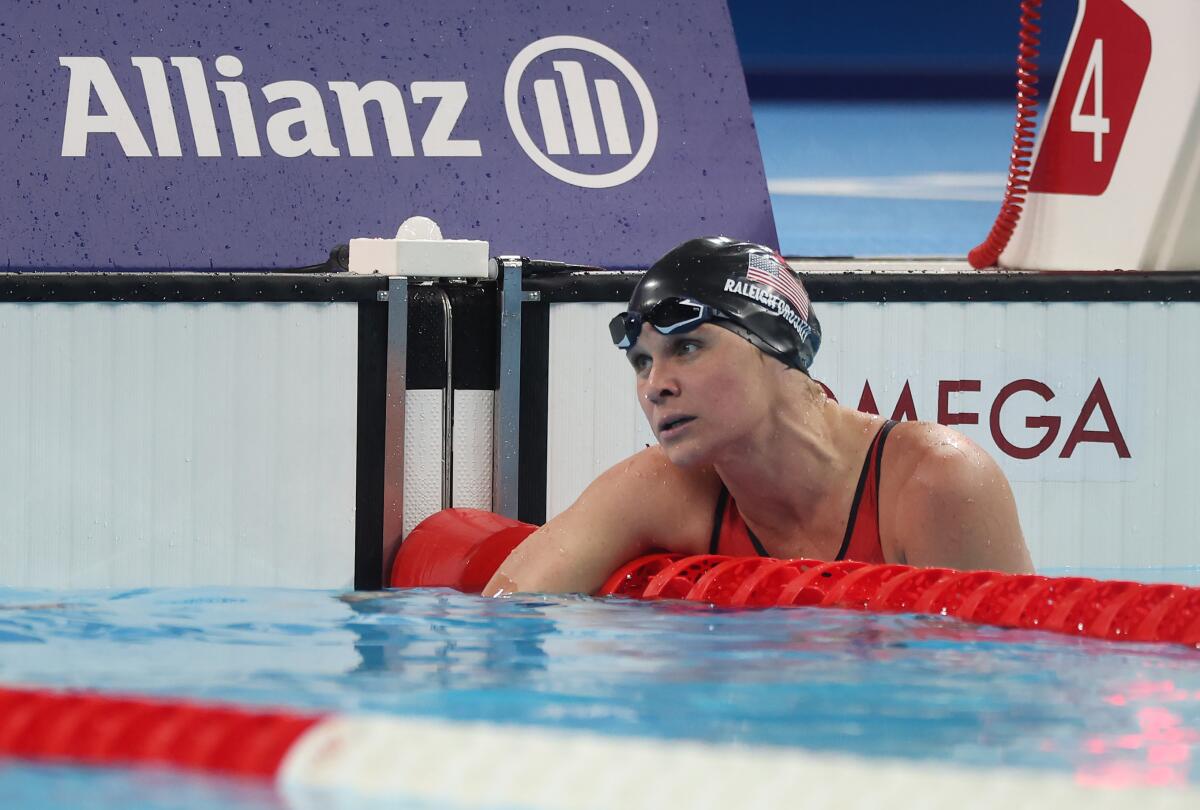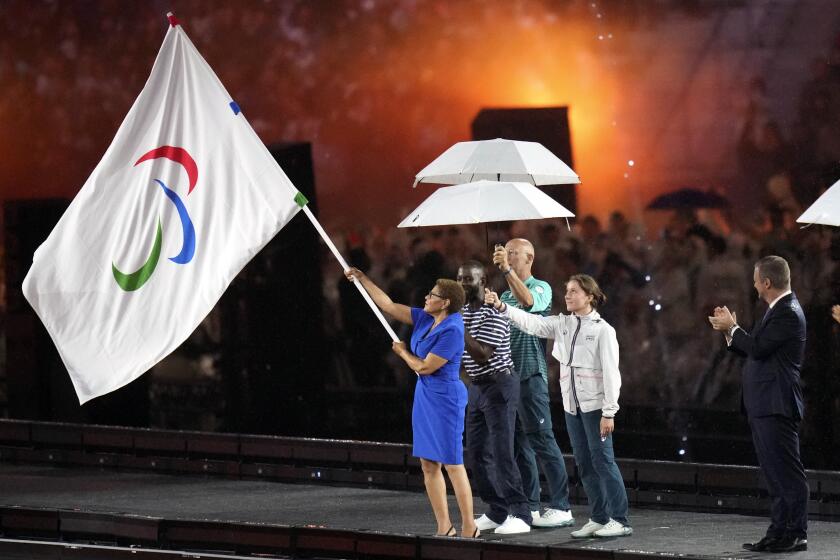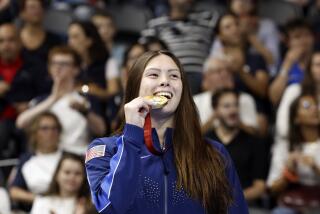U.S. Paralympic swimmer responds to ‘toxic behavior’ after her silver-medal finish

- Share via
“Horrific” is not a word you normally hear from an athlete who has just medaled in a big-time race.
“I’m going to be full-on honest,” Christie Raleigh Crossley said. “Today was absolutely horrific.”
The U.S. swimmer expressed dismay shortly after winning silver in the 50-meter freestyle at the 2024 Paralympic Games. She was responding to criticism over the category in which she competes.
Raleigh Crossley described what she called “ongoing harassment that I’ve been enduring for the past two years, since I entered para swimming.”
Visually impaired parathletes share how they rely on sound and touch to know when to kick a soccer ball or when to time a long-jump leap.
At issue is a central mechanism for fairness in para sports.
The classification system attempts to create a level playing field by grouping athletes of equal or similar disabilities, as determined by medical examination.
These subcategories can be obvious, separating people who wear prosthetics, use wheelchairs or have visual impairments. They can also be subtle if not overlapping, based on the degree to which an athlete is impaired.
The 37-year-old Raleigh Crossley races in classifications — S9 and S10 — for swimmers with weakness, loss of coordination and other issues.
When she set a world record in a Thursday prelim at 50 meters, social media erupted with accusations that she belongs in another category. Among her critics were fellow para swimmers.
“S9?” Sarai Gascon Moreno of Spain wrote. “It’s a joke?”
American star para swimmer Jessica Long appeared to agree, replying to Moreno: “I stand with you.”
After seeing negative comments online, Raleigh Crossley contacted the U.S. Olympic & Paralympic Committee.
“We take all matters of bullying, harassment and abuse with the utmost seriousness,” the USOPC said in a statement. “Every athlete deserves to be treated with respect and dignity, and we are committed to fostering an atmosphere that not only encourages excellence in competition but also prioritizes mental and emotional well-being.”
An NCAA All-American and Olympic hopeful in her youth, Raleigh Crossley suffered a series of injuries as a young woman that left her with neck and back injuries and ultimately required brain surgery, leaving her with some paralysis.
In early 2022, the single mother of three returned to the pool and began training as a para swimmer. She soon broke her first national record and by 2023 won gold in the 100-meter backstroke at the world championships.
“To be told online by all these bullies that I’m somehow not as disabled as I appear, just because I can swim faster than them, it’s pretty devastating,” she said. “I’ll shave my head tomorrow and you can see the scar and the dent if you want.”
A look back and the inspirational stories from the 2024 Paris Paralympics, which featured 4,400 athletes from more than 160 countries competing.
Raleigh Crossley read the most recent criticism after setting the record on Thursday. In the final a few hours later, she finished second to Chen Yi of China, who bettered the mark by almost two-tenths of a second.
“I didn’t expect this at all,” Chen said. “I didn’t even think I would win gold.”
After meeting with officials to discuss the negative reaction to her online, Raleigh Crossley remained determined. She is scheduled to race in three more events in Paris.
“I truly live it when I say that I want to change for the better the future of the Paralympic movement,” she said. “I mean removing this toxic environment, removing this toxic behavior.”
More to Read
Go beyond the scoreboard
Get the latest on L.A.'s teams in the daily Sports Report newsletter.
You may occasionally receive promotional content from the Los Angeles Times.







